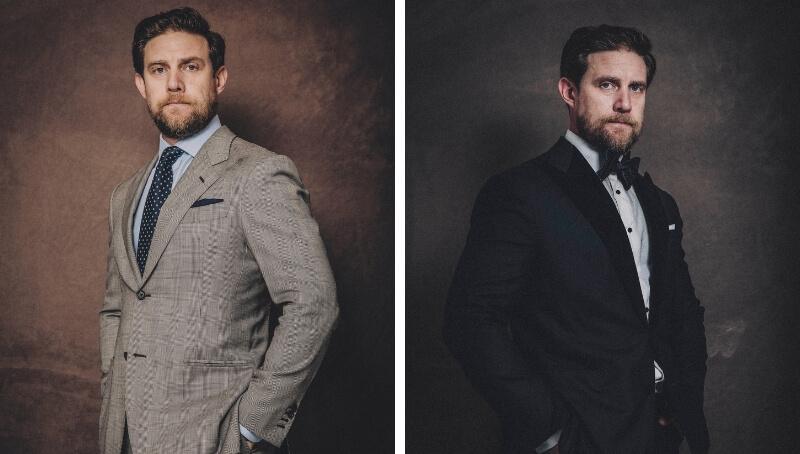He works as a tailor, a word that is not heard as much perhaps because tailor-made clothing is not talked about as much anymore. Or at least not like before, a "before" where men wore hats and the national industry could boast of manufacturing fabrics of such high quality as those of the first countries in the world.
“All the clothing in the history of mankind arises in tailoring, in artisan work, even for women”, explains Nicolás Zaffora, a 44-year-old young tailor (bearing in mind that those who remain are over 80 ). “Only after the Industrial Revolution, clothing workshops appeared everywhere and some visionary noticed that it was more business to do things by size and not to measure, so the artisans who made a whole garment began to deal with only a part which was then assembled and thus the workshops arose”.
Ten years ago, Nicolás became an entrepreneur of his own brand and made his last name synonymous with high-end garments to the point that every year he attends Pitti Immagine Uomo, the most important tailoring fair. important event in the world that takes place in Florence, Italy.
“When I decided I bought a small portable machine and, in the two-room apartment that I had and on a plank of pine wood, I started doing the first things for my friends”.

Today he has a beautiful salon and workshop on the charming Arroyo street in Buenos Aires and describes his clients as “sybarites who like well done things”. Automatically, the question that arises is: how did it grow so much? His answer is “I have no idea”, because he says that he never invested in advertising and that the first systematic marketing he did was on LinkedIn, generating contacts and posting his work. That's where his first clients came from.
Almost all the fabrics she uses are English and Italian and made of natural fiber (of animal and vegetable origin, which are the best). “I only use imported fabrics because the good quality national industry does not exist today; years ago there was but it melted… it is part of Argentine history”, he reflects.
Nicolás does not come from the academy but learned the trade working with experienced tailors. But before that he had an experience that was perhaps the first seed: he lived for 10 years in a convent where he was in charge of making religious habits.
“I didn't learn anything aesthetic there because it's all the same clothes and for people who don't look in the mirror, but I did learn to do things well,” he recalls. Later, he learned the sense of beauty from Italian tailoring .
“In this profession there was a generation gap because the tailors did not tell what they did and a world of secrets began to be created, almost like a lodge, and that attitude finally threatened the lives of the new generations of tailors”, reflect. “In addition, after the Second War there was an explosion of commerce and consumption, with clothes in series, ready to wear ad nauseam; today there is a tendency to return to valuing the artisanal, the handmade and made-to-measure”.
Zaffora is currently expanding to Paraguay and Peru, it already has clients from Ecuador, the United States and Panama and the idea is to continue growing. Everything with the "bespoke" parameter, a term used to refer to garments made to measure and manually. And a curious fact: he buys scissors from tailors who retire because they are tools that can last 200 years.
Beyond the fact that the suit is the garment par excellence that favors the masculine image, Zaffora gives it his particular seal: the chest pocket is designed with a slight curve and the inside of the jacket is sewn with colored silk thread natural.
“Style is subjectivity put on clothes”, summarizes Nicolás and when asked what the client who comes to his business is looking for, he answers without hesitation: “To feel safe. With my suits, my client covers himself and protects himself, both from the inclement weather (cold or heat) and from the eyes of others”.
48 Best Parka For Extreme Cold In 2021 Based On 7300 Reviews
Coronavirus Mexico July 4; summary of the latest news, infections and deaths
Bertín Osborne gives Pablo Motos a zasca for 'El Hormiguero': "You don't spend the money"
The dandies of the Congo